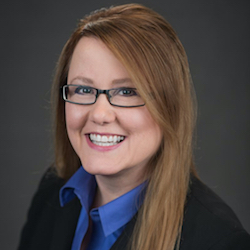
I landed my first “real” job when I was a high school student. At a landmark drugstore in town, I scooped ice cream at the soda fountain (it wasn’t just any old drugstore) and rang up customers’ prescriptions and toiletries at a counter in the back. I was fortunate enough to be able to return to the position during holiday and summer breaks in college, too, until I finished my undergraduate degree and began working in the field of communication.
I had applied for the job to earn a paycheck, not realizing at the time that I would receive other benefits. The position helped me overcome my innate shyness, because it required me to approach people seated on stools at the soda fountain, or at tables nearby, to wait on them, and these customers expected me to engage in smalltalk while they enjoyed their coffee or sweets. I also honed skills related to responsibility and teamwork.
I thought about my experience this week when I read about a Workforce Preparedness Study survey commissioned by McDonald’s, the Land of Golden Arches from which no doubt many senior living employees got their start and with which many senior living communities still compete for workers at some levels.
Respondents said that “soft skills,” such as teamwork, customer service and responsibility (being on time, dressing appropriately, etc.), are more important than “hard skills,” such as computer programming or accounting, for workers at the beginning of their careers. And survey-takers said that the workplace, more so than high school or college or home, is the best place for workers, especially those in their first jobs, to develop those skills.
Changing demographics in the workforce motivated the research, according to McDonald’s, which believes that other employers can apply the findings as well.
“As the workforce gets older, our nation is facing a seismic shift in the workplace, one that will require all business owners to take a fresh look at employee training and development,” McDonald’s USA Chief People Officer Melissa Kersey said. “As employers, we should re-examine which skills matter most, especially for the next generation entering the workforce. We should lay that foundation for employees to build the soft skills they need that will serve them throughout their career.”
The survey targeted 6,247 people in the general U.S. population. It included 966 people from Gen Z (people aged 16 to 24 years) as well as 762 former McDonald’s workers. It’s especially important for companies to focus on soft skill development in this youngest generation of workers, Kersey said.
“If we don’t address the current gap in soft skills, particularly for Gen Zs, it will have a detrimental impact on the future of work in our nation,” she said. “As employers, we play the leading role in helping teach those skills.”
Some of the survey’s other findings:
- 88% of respondents said the opportunity to develop soft skills is somewhat (28%) or very (60%) important.
- The older people get, the more likely they are to believe that it is difficult for businesses to find qualified young people to meet the needs of a job. Forty-six percent of Gen Z members (18 to 24 years old), 54% of millennials (25 to 37 years old) and 65% of those aged 38 or more years polled held that belief.
With survey results in hand, McDonald’s said it plans to develop or expand partnerships with organizations to provide its employees with tools to help them improve their soft skills and connect them with education and career advancement opportunities.
What will you do with the results?
Lois A. Bowers is senior editor of McKnight’s Senior Living. Follow her on Twitter at @Lois_Bowers. Email her at [email protected].



